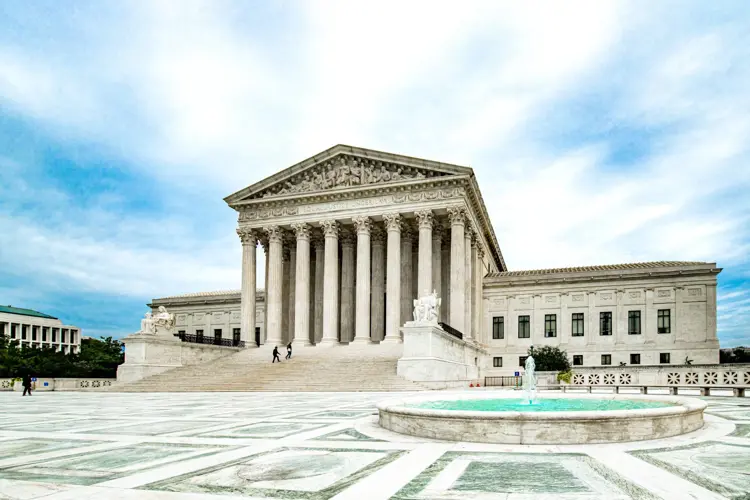Juul Labs has filed a lawsuit in federal court to force the FDA to give it access to documents that would explain the agency’s marketing denial order (MDO) of all current Juul products. The complaint was filed Tuesday in the U.S. District Court for the District of Columbia.
Juul has asked the court to order the FDA to disclose the requested documents, enjoin the agency from continuing to withhold responsive records, and to assume and maintain jurisdiction until the FDA complies with Juul’s FOIA requests and other orders of the court.
FDA’s bizarre actions surrounding Juul’s PMTA
After first leaking its impending action to the Wall Street Journal on June 22, the FDA issued an MDO for current Juul products the next day, based on patently flimsy claims that Juul’s $100 million premarket tobacco applications (PMTAs) had left out important toxicological evidence. The FDA had spent nearly two years reviewing the company’s PMTAs, and could have issued a deficiency letter at any time during that period if vital information was actually missing.
On June 24, a day after the FDA issued the MDO, Juul sought and received a temporary stay of the order from the D.C. Circuit Court of Appeals. Then, on July 5—two weeks after the court temporarily prevented the FDA from enforcing its MDO—the agency backed down and issued its own stay to Juul, claiming it had “determined that there are scientific issues unique to the JUUL application that warrant additional review.” But despite issuing a stay and promising additional PMTA review, the FDA did not rescind its MDO, as it has for other companies like Turning Point Brands.
Juul’s FOIA requests hit a brick wall
Seeking information about the FDA’s processes and actions, Juul Labs used the Freedom of Information Act (FOIA) to request access to scientific disciplinary reviews and other documents related to Juul’s PMTAs. Of 292 pages the FDA identified as responsive to Juul’s FOIA request, the agency agreed to provide only 115 pages in full, citing the “deliberative process privilege” as the reason for denying Juul access to most of the documents.
The deliberative process privilege is one of the exemptions federal agencies have available to justify withholding documents requested through FOIA. The National Law Review says the exemption is intended to “ensure that federal agencies are able to engage in frank and open discussions in their decision-making processes” by allowing an agency like the FDA to deny FOIA requests for “predecisional” and “deliberative” documents.
New: @JUULvapor goes to court after @FDATobacco refuses FOIA requests to disclose the scientific reasoning behind FDA’s decision to order Juul off the market.
Why so secretive? I think we know the answer to that. https://t.co/FDAutnBt6W
— Clive Bates (@Clive_Bates) September 20, 2022
According to its Tuesday court filing, Juul also had informal discussions with the FDA, but “even though FDA regularly releases these materials when making marketing decisions for other tobacco products, the agency invoked the deliberative process privilege and refused to provide that same information” to Juul. The company also filed an administrative appeal with the FDA, but received no response by Sept. 13, the agency’s statutory deadline for resolving the appeal.
The deliberative process privilege, Juul says, “is supposed to promote candid policy debates within agencies. It was never meant to shield an agency’s scientific work from public scrutiny.”
What will the withheld documents show? Juul clearly believes they will show the FDA had no scientific foundation for denying its application. That would be important. What they won’t show, unfortunately, are the phone calls between FDA Commissioner Robert Califf and members of Congress like Illinois Senator Dick Durbin who have relentlessly pressured the FDA to destroy Juul no matter what the agency’s scientific review proves.
“Sooner or later, we will learn how much corruption has directed the FDA’s decisions,” said American Vapor Manufacturers Association President Amanda Wheeler.
The Freemax REXA PRO and REXA SMART are highly advanced pod vapes, offering seemingly endless features, beautiful touchscreens, and new DUOMAX pods.
The OXVA XLIM Pro 2 DNA is powered by a custom-made Evolv DNA chipset, offering a Replay function and dry hit protection. Read our review to find out more.
The SKE Bar is a 2 mL replaceable pod vape with a 500 mAh battery, a 1.2-ohm mesh coil, and 35 flavors to choose from in 2% nicotine.
Because of declining cigarette sales, state governments in the U.S. and countries around the world are looking to vapor products as a new source of tax revenue.
The legal age to buy e-cigarettes and other vaping products varies around the world. The United States recently changed the legal minimum sales age to 21.
A list of vaping product flavor bans and online sales bans in the United States, and sales and possession bans in other countries.
















